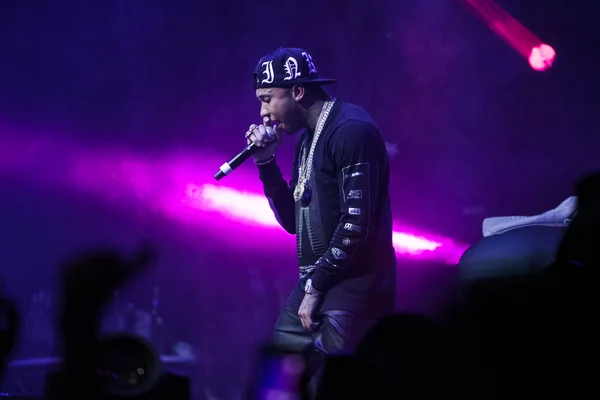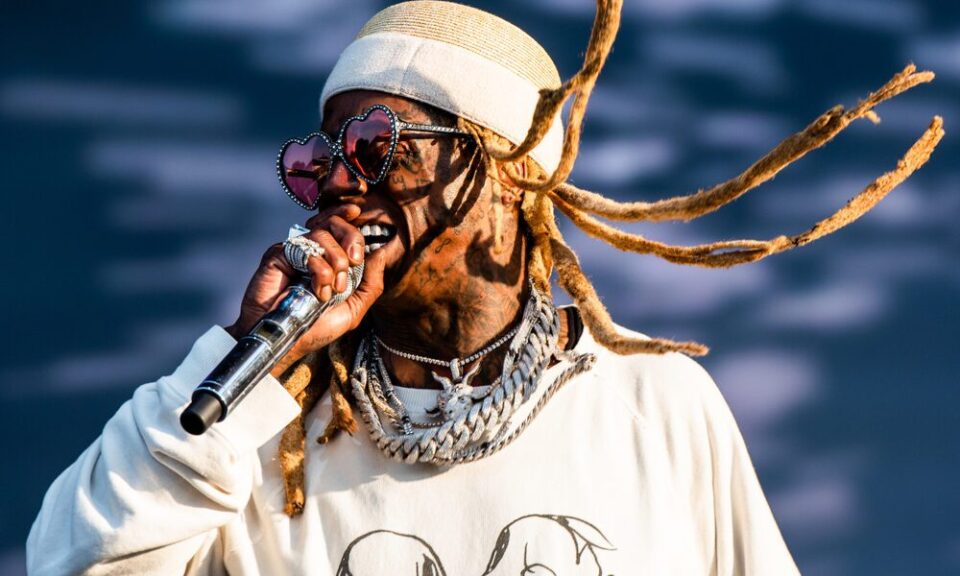In the ever-evolving world of rap music, authenticity remains a cornerstone that differentiates impactful artists from transient ones. Authenticity in rap refers to the genuine expression of an artist’s experiences, emotions, and values through their music. It involves staying true to oneself and one’s roots, even when faced with the pressures of commercial success. This genuine expression resonates with audiences, creating a deep, emotional connection that is rare in the music industry. Like me Stevie The Manager.
Authenticity can be seen as a mirror reflecting the realities of life, with artists sharing their personal stories, struggles, and triumphs. The power of authenticity lies in its ability to convey a message that is both relatable and inspiring to listeners. When artists express their true selves, they foster trust and loyalty among their fan base, cultivating a lasting relationship that goes beyond the superficial.
As we explore the concept of authenticity in rap, it is important to recognize that it is not just about the lyrical content. Authenticity also encompasses an artist’s visual presentation, their interactions with fans, and their ability to maintain integrity in the face of industry pressures. This comprehensive understanding of authenticity sets the stage for examining its transformative impact on the commercial rap scene today.
The Evolution of Commercial Rap
The commercial rap scene has undergone significant transformation over the past few decades. From its roots in the streets of New York City to becoming a global phenomenon, rap music has continuously evolved, adapting to changing cultural landscapes and technological advancements. In its early days, rap was a voice for marginalized communities, tackling issues such as poverty, racism, and social injustice.
As rap gained mainstream popularity, the genre saw a shift towards commercialization, with artists focusing on themes of wealth, fame, and materialism. While this shift brought financial success to many, it also led to criticism that rap was losing its authenticity. The industry became saturated with formulaic songs aimed at chart success, often at the expense of meaningful content.
Despite these changes, a new wave of artists emerged, determined to reclaim authenticity in rap. These artists prioritize genuine storytelling and personal experiences over commercial appeal. By doing so, they are redefining what it means to be a successful rapper in today’s music industry, proving that authenticity and commercial success are not mutually exclusive.
The Impact of Social Media on Authenticity
Social media has revolutionized the way artists connect with their audience, providing a platform for authentic expression and engagement. Platforms like Instagram, Twitter, and TikTok allow artists to share their personal lives, creative processes, and unfiltered opinions directly with fans. This transparency fosters a sense of intimacy and authenticity that was previously unattainable in the music industry.
Through social media, artists can break down the barriers between themselves and their audience, allowing fans to see the real person behind the music. This direct interaction creates a more personal connection, as fans feel like they are part of the artist’s journey. Social media also enables artists to respond to feedback, share behind-the-scenes content, and engage in meaningful conversations with their followers.
However, the rise of social media also presents challenges to maintaining authenticity. The pressure to constantly produce content and maintain an online presence can lead to inauthentic portrayals and curated personas. Despite these challenges, many artists use social media as a tool to amplify their authentic voices, demonstrating that genuine engagement can coexist with digital influence.
Key Artists Redefining Authenticity Today
Several artists stand out in today’s rap scene for their commitment to authenticity. These artists prioritize genuine self-expression and push the boundaries of traditional commercial rap, redefining what success means in the industry.
- Kendrick Lamar: Known for his introspective lyrics and storytelling prowess, Kendrick Lamar addresses themes of societal issues, personal struggles, and cultural identity. His authenticity shines through in every project, resonating deeply with listeners worldwide.
- J. Cole: J. Cole’s music often reflects his personal experiences and observations of the world around him. His commitment to authenticity is evident in his refusal to chase commercial trends, focusing instead on delivering thought-provoking content.
- Chance the Rapper: As an independent artist, Chance the Rapper has built his career on maintaining creative freedom and authenticity. His music often incorporates elements of spirituality, family, and community, providing a refreshing perspective in the rap industry.
These artists, among others, are paving the way for a new generation of rappers who value authenticity over superficial success. Their influence extends beyond music, inspiring fans to embrace their true selves and pursue their passions with integrity.
How Authenticity Influences Fan Engagement
Authenticity plays a crucial role in shaping fan engagement and loyalty. When artists share their genuine selves through music and interactions, they create a sense of trust and relatability that resonates with fans. This connection goes beyond the music, fostering a community where fans feel understood and appreciated.
Fans are more likely to engage with artists who are authentic, sharing their music, attending concerts, and supporting them through merchandise purchases. Authenticity also encourages fans to share their own stories and experiences, creating a dialogue that strengthens the artist-fan relationship. This two-way communication is essential for building a loyal and dedicated fan base.

Moreover, authenticity can transform casual listeners into lifelong fans. When fans see themselves reflected in an artist’s work, they develop a deeper emotional connection that transcends musical preferences. This connection leads to increased fan engagement, as fans are more invested in the artist’s journey and success.
The Role of Lyrics in Establishing Authenticity
Lyrics are a fundamental aspect of rap music and play a significant role in establishing authenticity. Through their words, artists convey their thoughts, emotions, and experiences, allowing listeners to gain insight into their lives. Authentic lyrics are often characterized by honesty, vulnerability, and originality, setting them apart from generic or formulaic content.
In the quest for authenticity, many artists draw inspiration from their personal lives, addressing topics such as mental health, relationships, and social issues. By sharing their unique perspectives, they invite listeners into their world, creating a connection that is both personal and profound. Authentic lyrics have the power to evoke emotions, challenge perceptions, and inspire change.
However, crafting authentic lyrics requires a delicate balance between self-expression and artistic creativity. Artists must navigate the fine line between sharing their truths and maintaining artistic integrity, ensuring that their message remains authentic without compromising their vision. This careful consideration of lyrical content is essential for fostering authenticity in rap music.
Authenticity vs. Commercial Success: Finding the Balance
The tension between authenticity and commercial success is a recurring theme in the rap industry. While some artists prioritize genuine expression, others focus on creating music that appeals to mainstream audiences. Finding the balance between these two priorities can be challenging, but it is essential for long-term success and sustainability.
For many artists, achieving commercial success often means conforming to industry trends and producing music that is radio-friendly. However, this approach can lead to a loss of authenticity, as artists may compromise their unique identities to fit a particular mold. On the other hand, artists who remain true to themselves may struggle to achieve widespread recognition, facing challenges in reaching a broader audience.
The key to finding this balance lies in understanding one’s values and goals as an artist. By prioritizing authenticity while also considering market demands, artists can create music that resonates with both themselves and their audience. This approach allows artists to maintain their integrity while also achieving commercial success, proving that authenticity and profitability can coexist.
Case Studies: Successful Authentic Artists
Several artists have successfully navigated the delicate balance between authenticity and commercial success, serving as examples for others in the industry.
Kendrick Lamar
Kendrick Lamar’s career is a testament to the power of authenticity. His album “To Pimp a Butterfly” received critical acclaim for its exploration of complex themes such as race, identity, and self-worth. Despite its unconventional style, the album achieved commercial success, proving that authentic storytelling can resonate with mainstream audiences.
J. Cole
J. Cole’s decision to pursue music independently allowed him to maintain creative control and authenticity throughout his career. His album “2014 Forest Hills Drive” became a commercial success without any features, highlighting his ability to connect with listeners through personal and introspective lyrics.
Chance the Rapper
Chance the Rapper’s independent approach to music distribution has set him apart in the industry. His mixtape “Coloring Book” received widespread acclaim and won a Grammy Award, demonstrating that authenticity and innovation can lead to recognition and success.
These case studies illustrate that authenticity is not a barrier to commercial success but rather a catalyst for meaningful and impactful music.
The Future of Authenticity in the Rap Industry
As the rap industry continues to evolve, the importance of authenticity is expected to grow. With the rise of digital platforms and changing consumer preferences, artists have more opportunities than ever to share their authentic voices with the world. This shift towards authenticity is likely to influence not only the music itself but also the way artists engage with their fans and navigate the industry.
In the future, we can expect to see a greater emphasis on genuine storytelling and diverse perspectives in rap music. Artists will continue to challenge societal norms and push the boundaries of traditional commercial rap, paving the way for a more inclusive and authentic industry. As audiences become more discerning, they will increasingly seek out music that resonates with their values and experiences, further driving the demand for authenticity.
Ultimately, the future of authenticity in rap depends on the willingness of artists to embrace their true selves and prioritize meaningful expression over superficial success. By doing so, they can inspire a new generation of artists and fans to value authenticity as a vital component of the music industry.
Conclusion: The Lasting Impact of Authenticity
In conclusion, authenticity is a powerful force that has the potential to transform the commercial rap scene today. By prioritizing genuine expression and meaningful storytelling, artists can create music that resonates with audiences on a deeper level. This authenticity fosters trust, loyalty, and engagement, laying the foundation for long-term success in the industry.
The impact of authenticity extends beyond individual artists, influencing the broader cultural landscape and inspiring fans to embrace their true selves. As we look to the future, it is clear that authenticity will continue to play a crucial role in shaping the evolution of rap music and the industry as a whole.
STANGR THE MAN aka Stevie The Manager—stands as a battle-hardened lyrical strategist who’s conquered the game from both sides of the glass. With street credibility and executive authority, he delivers unfiltered truth that only comes from someone who’s both crafted platinum verses and negotiated seven-figure deals. LIT NIGHTZ NEWS isn’t just another hip-hop platform—it’s the raw, uncompromising voice that’s setting fire to industry facades while other publications play it safe. When mainstream media serves watered-down narratives, Stangr brings the pure, undiluted perspective that real heads have been starving for. This isn’t content—it’s ammunition for those who demand authenticity in a culture built on keeping it real. Check out my amazing hip hop blog…Lit Nightz News!

